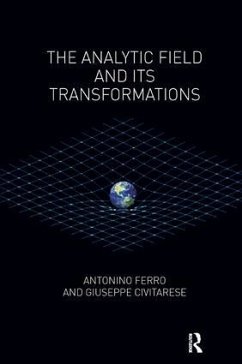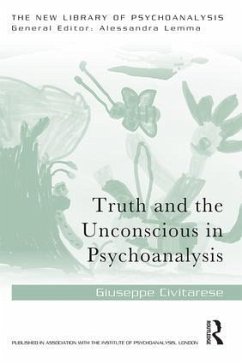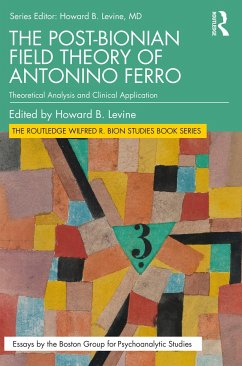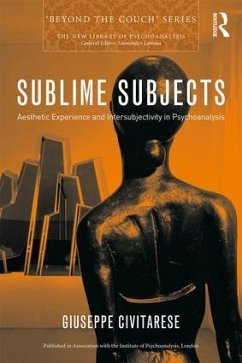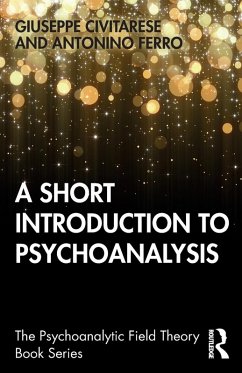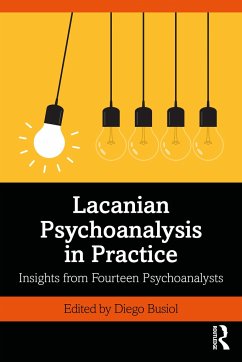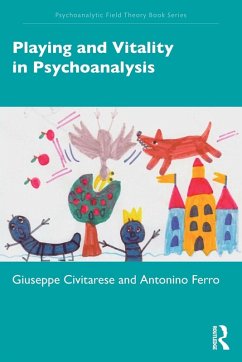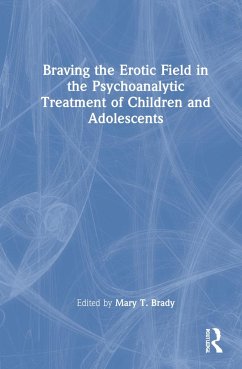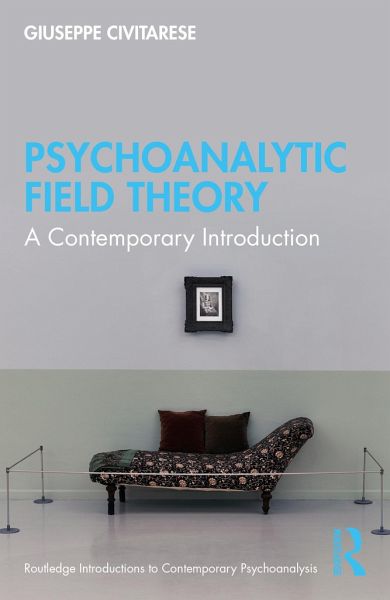
Psychoanalytic Field Theory
A Contemporary Introduction
Versandkostenfrei!
Versandfertig in 6-10 Tagen
25,99 €
inkl. MwSt.
Weitere Ausgaben:

PAYBACK Punkte
13 °P sammeln!
Written by one of the world's renowned Bionian Field Theory scholars, this foundational volume provides a thorough introduction to all facets of psychoanalytic field theory, one of the most lively and original currents of thought in contemporary psychoanalysis, to offer new answers to age-old questions around how psychic change occurs.With clinical examples to illuminate key themes of therapeutic effectiveness, current controversies, and future developments, the book presents a radically intersubjective view of the analytic process that focuses on the plane of unconscious communication common ...
Written by one of the world's renowned Bionian Field Theory scholars, this foundational volume provides a thorough introduction to all facets of psychoanalytic field theory, one of the most lively and original currents of thought in contemporary psychoanalysis, to offer new answers to age-old questions around how psychic change occurs.
With clinical examples to illuminate key themes of therapeutic effectiveness, current controversies, and future developments, the book presents a radically intersubjective view of the analytic process that focuses on the plane of unconscious communication common to both analyst and patient, moving beyond the I/you division to access the shared substance of the psyche. It centers the unconscious not as a hellish region of the psyche but as an important function of the personality that gives meaning to emotional experience.
Offering clear expositions of complex concepts and linking to more detailed sources of information, this book is important reading for all clinicians, trainees, and students interested in contemporary psychoanalysis.
With clinical examples to illuminate key themes of therapeutic effectiveness, current controversies, and future developments, the book presents a radically intersubjective view of the analytic process that focuses on the plane of unconscious communication common to both analyst and patient, moving beyond the I/you division to access the shared substance of the psyche. It centers the unconscious not as a hellish region of the psyche but as an important function of the personality that gives meaning to emotional experience.
Offering clear expositions of complex concepts and linking to more detailed sources of information, this book is important reading for all clinicians, trainees, and students interested in contemporary psychoanalysis.





